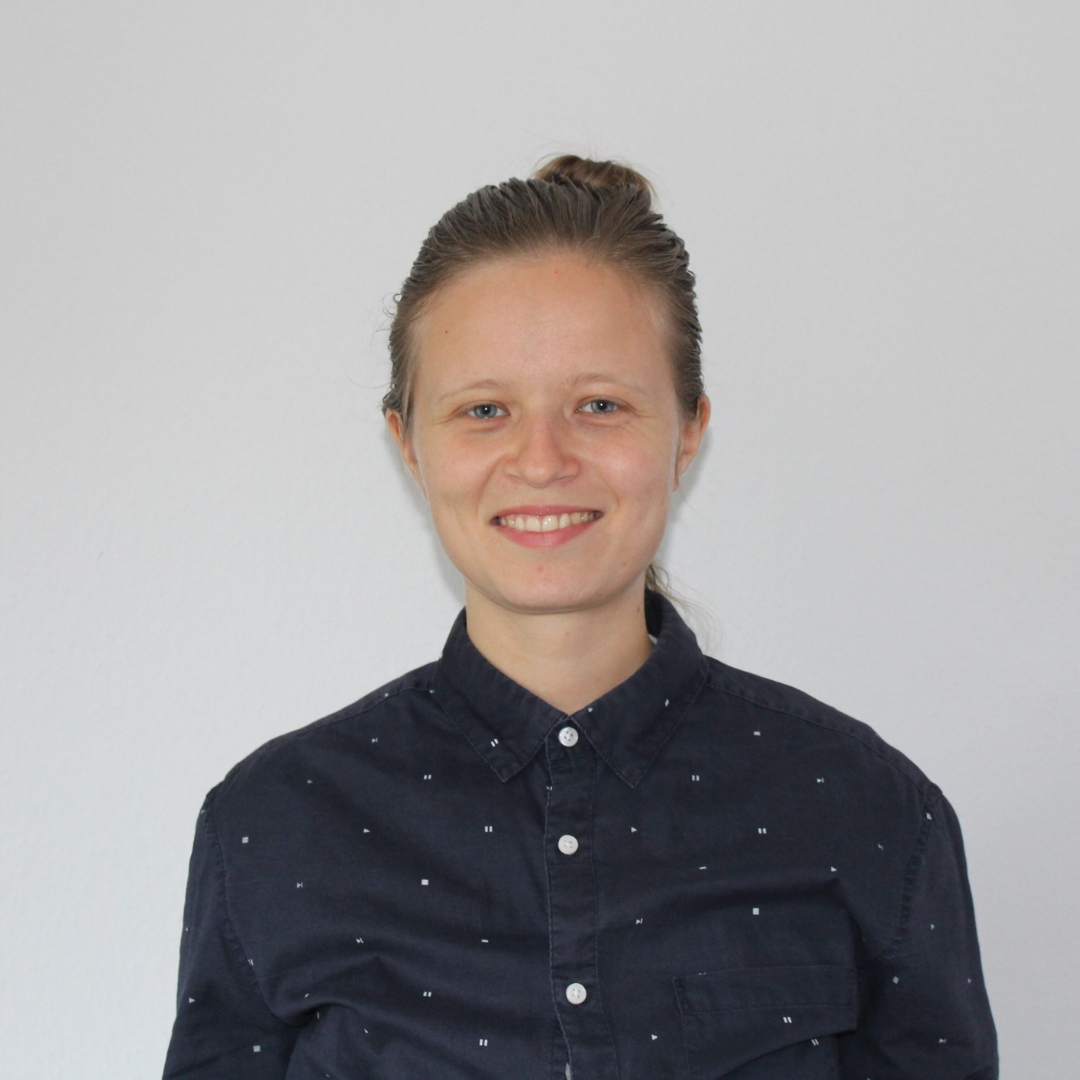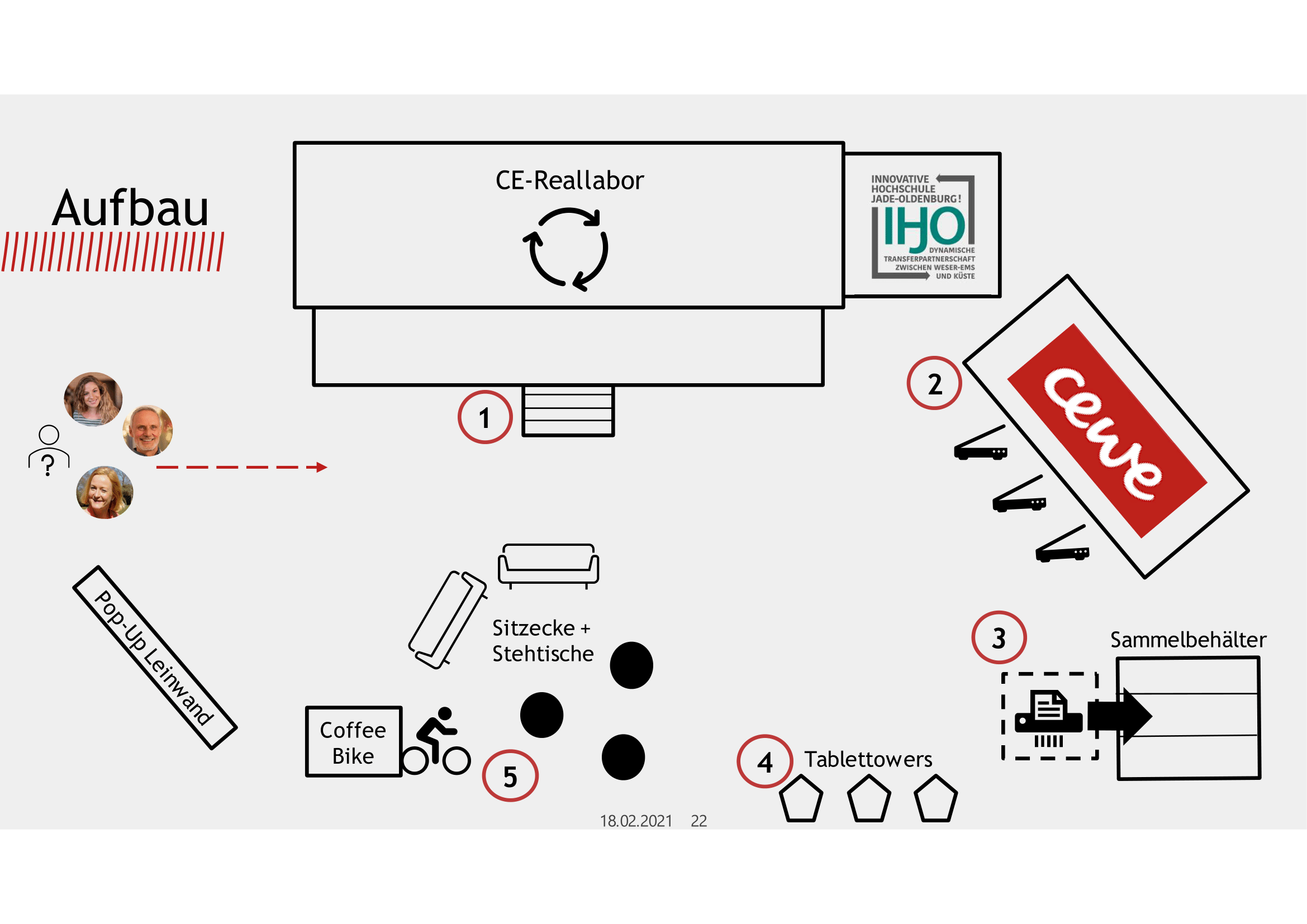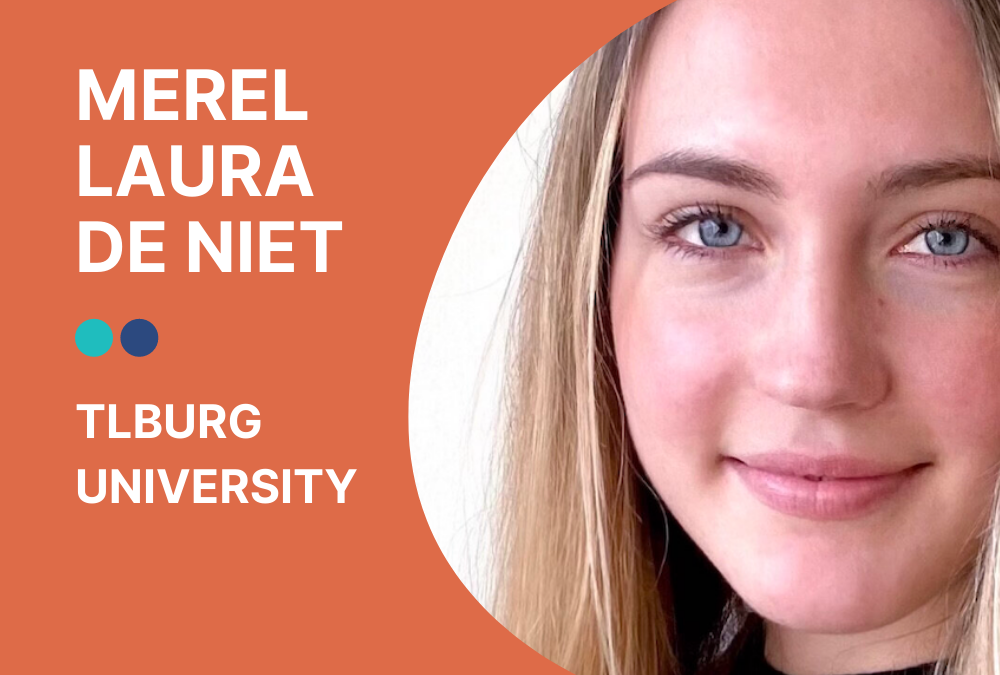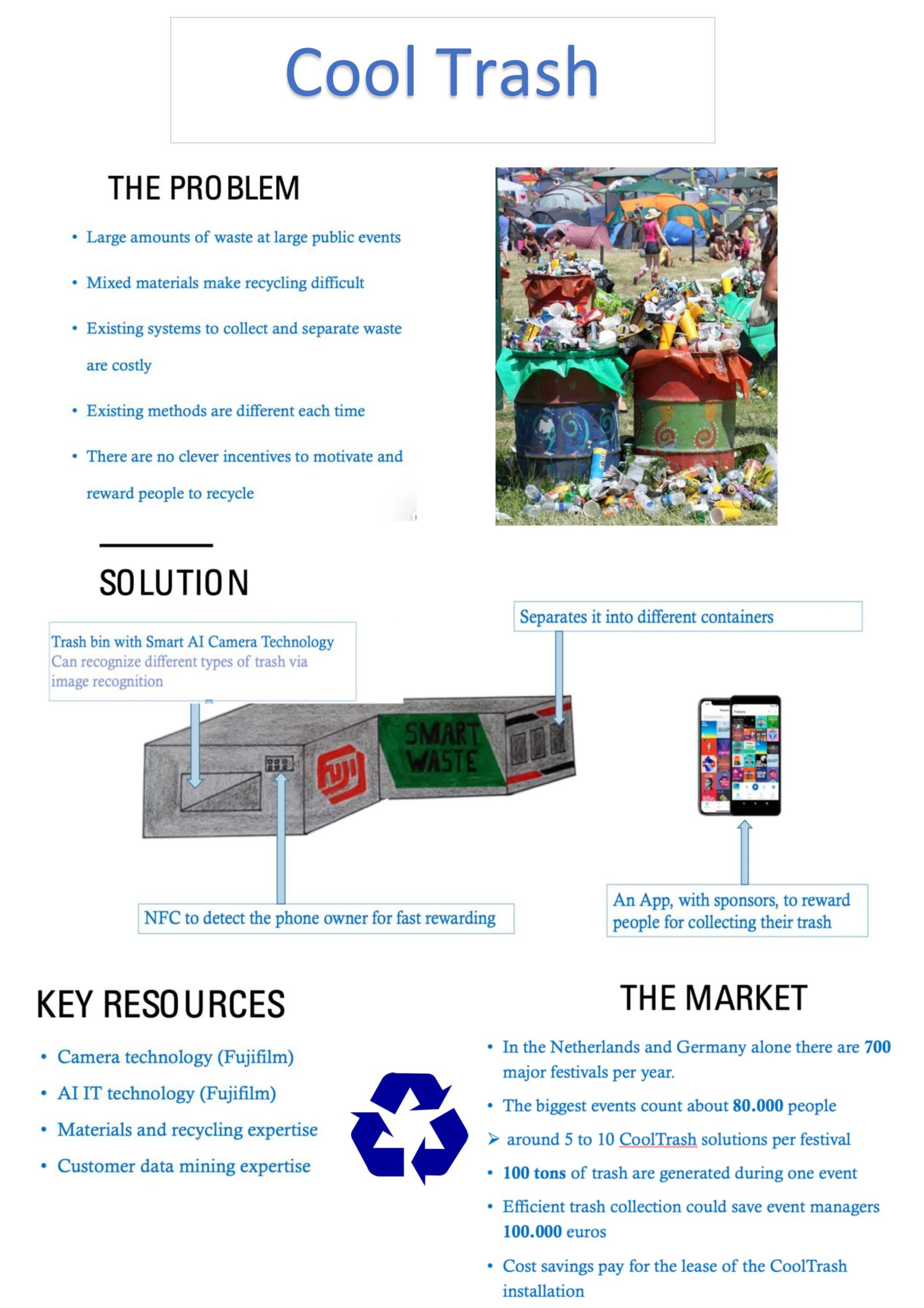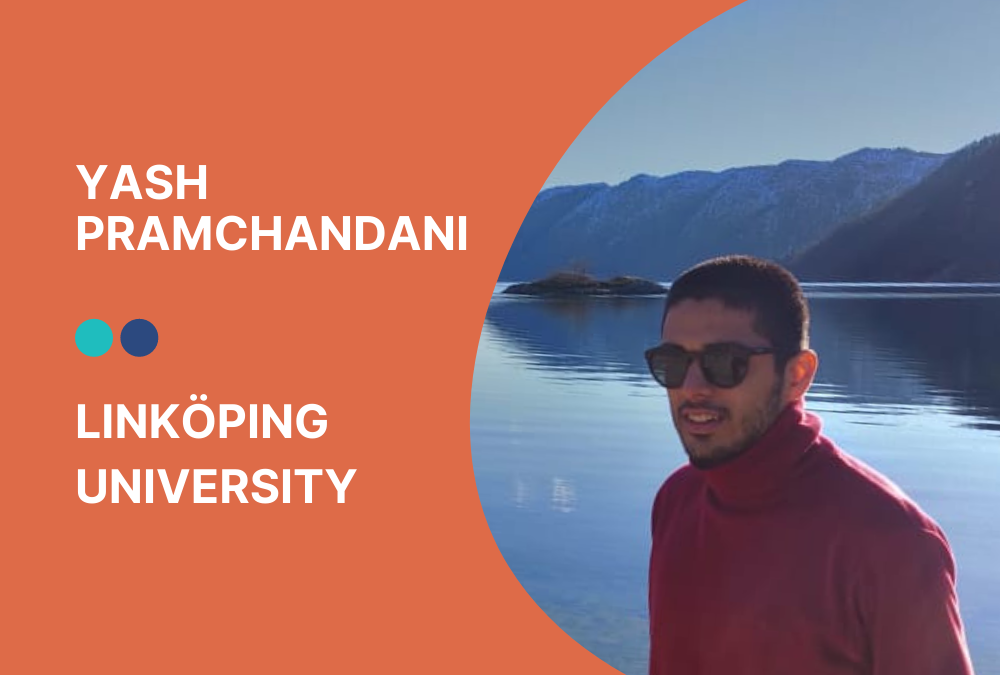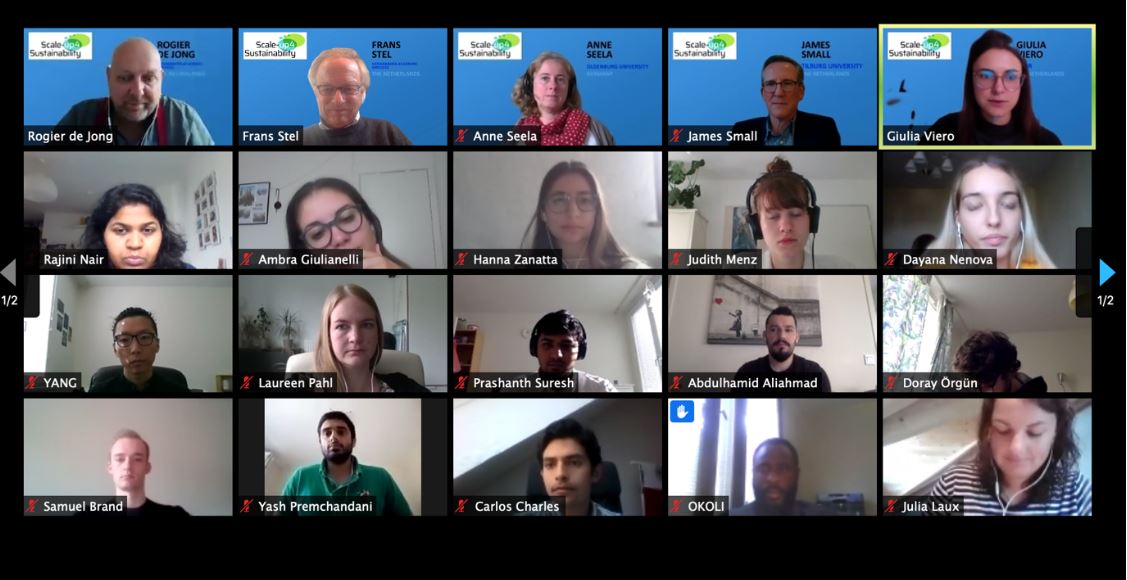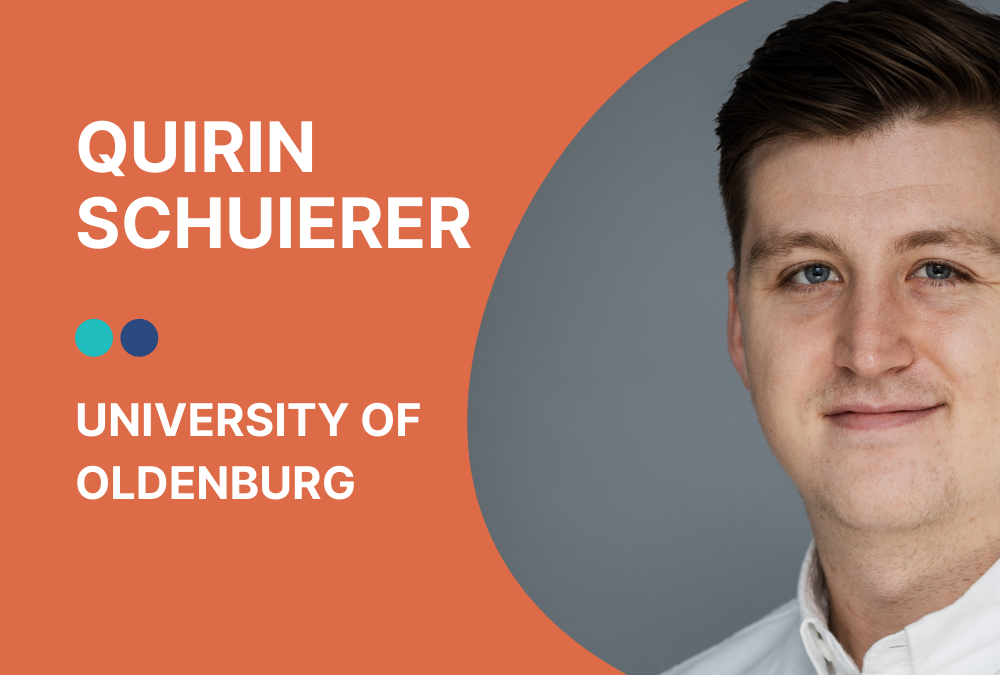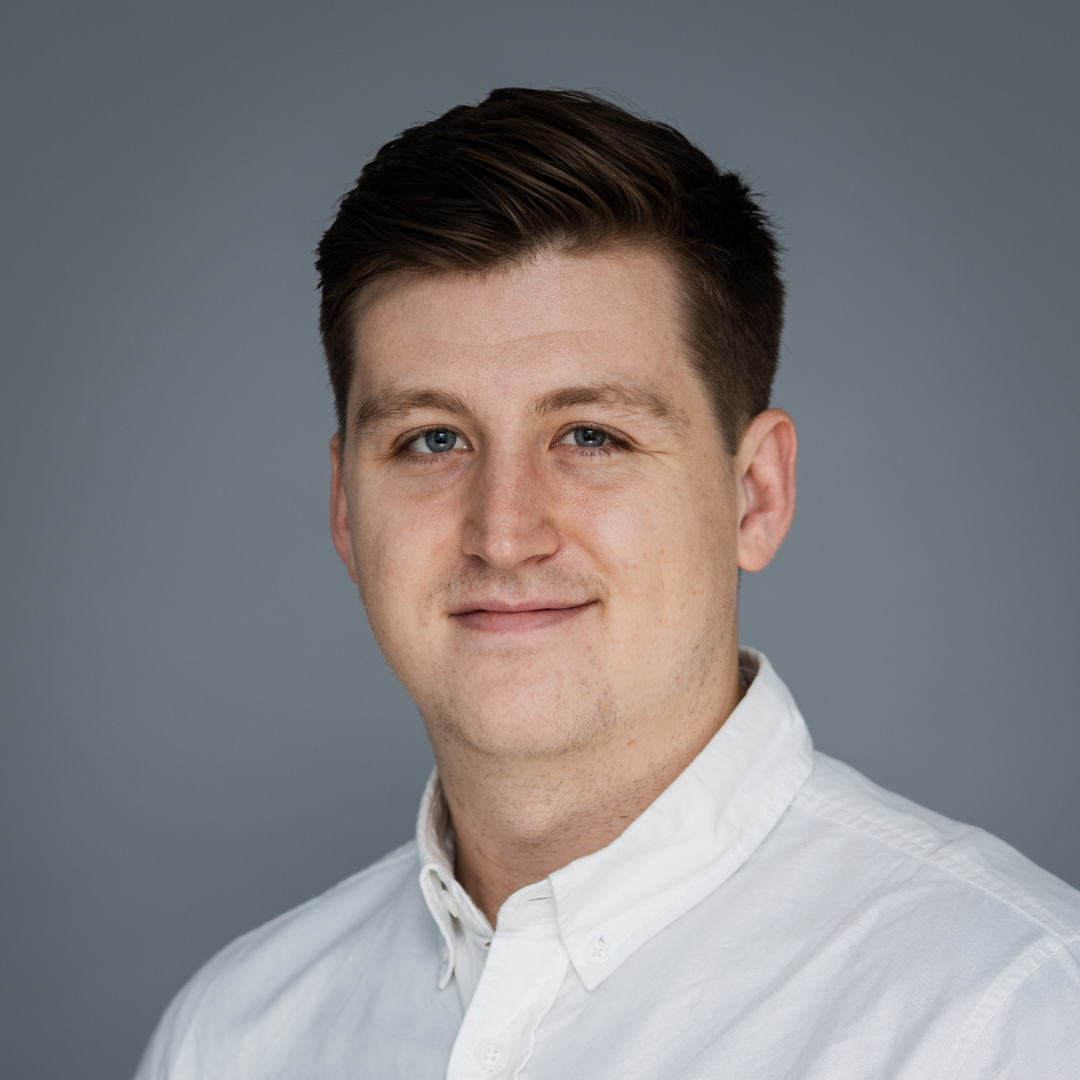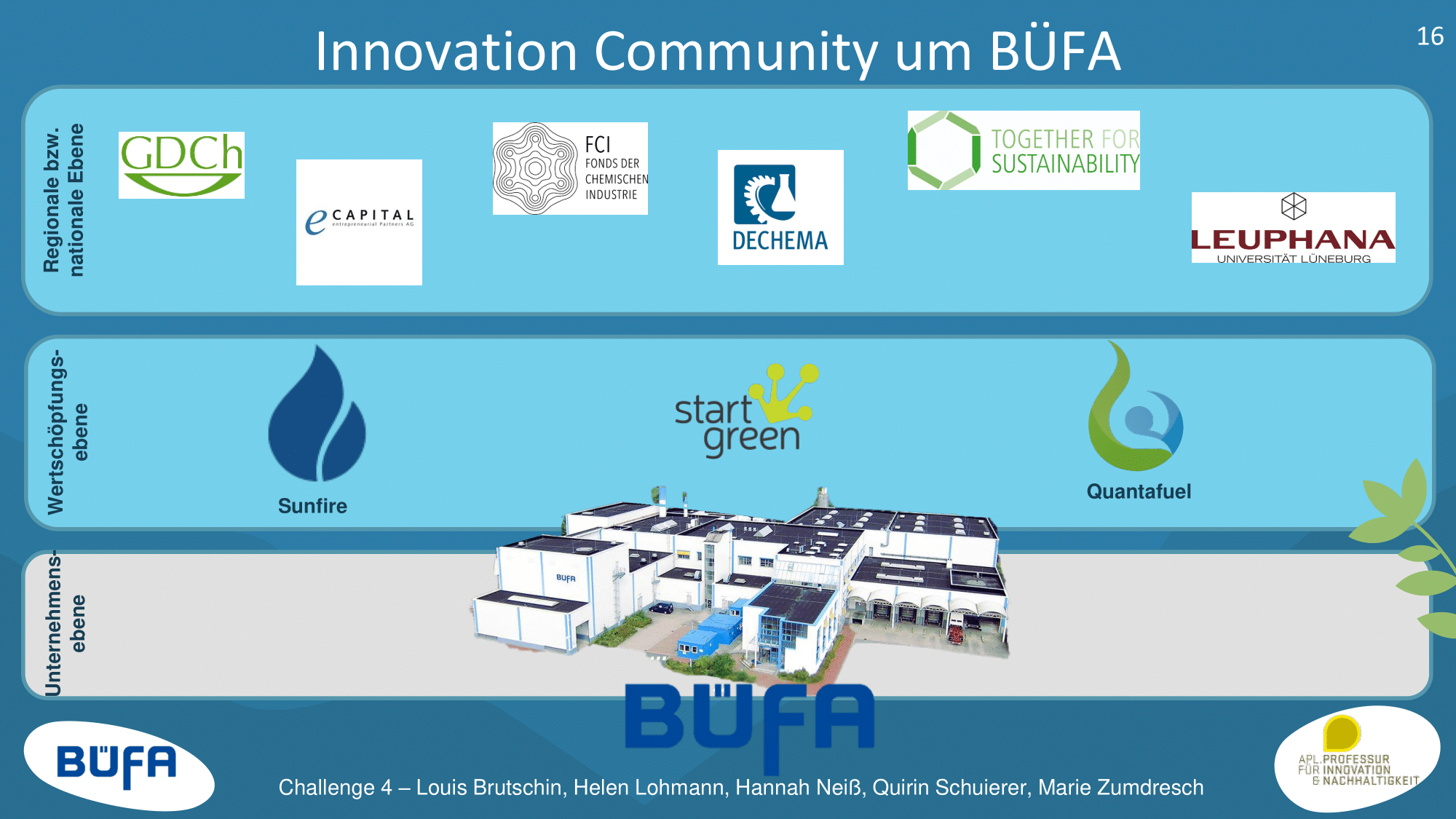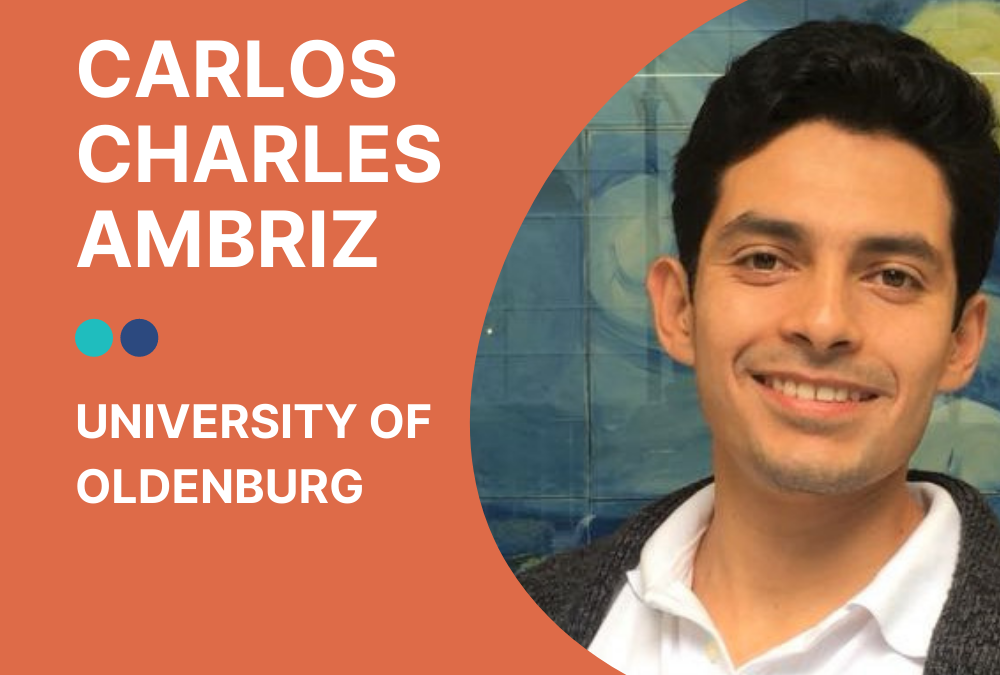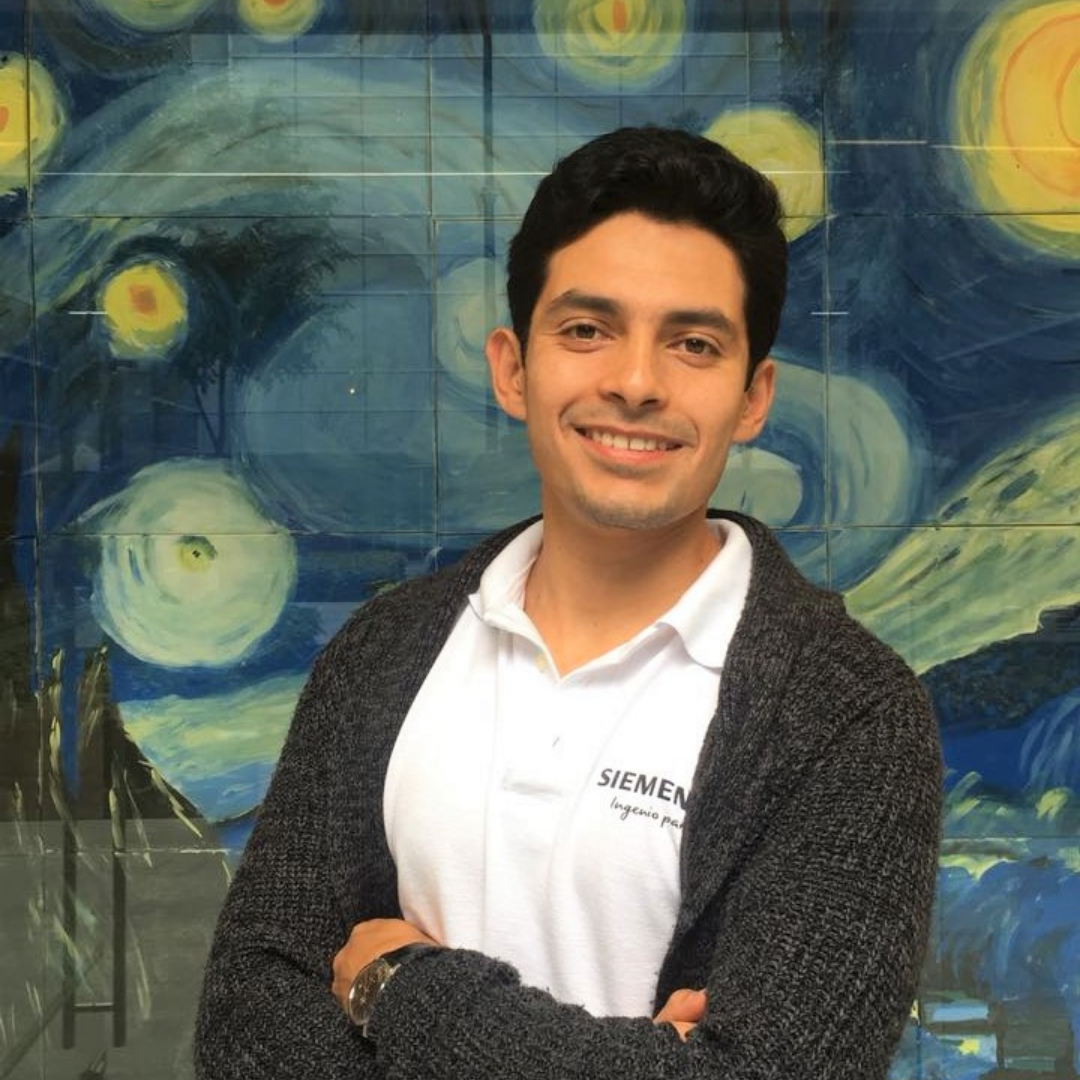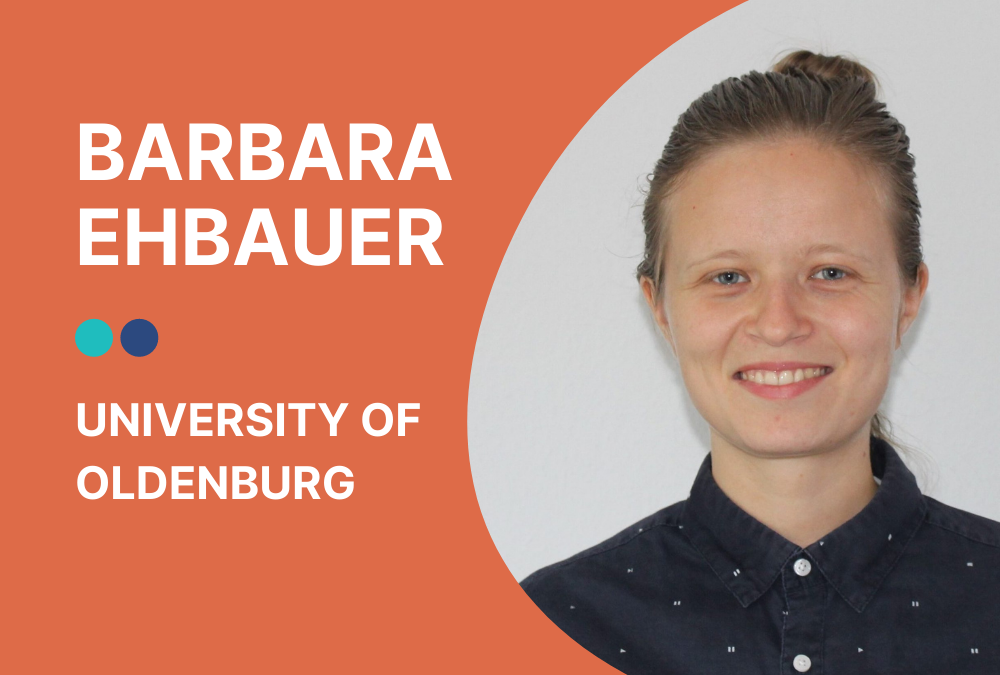
“It was exciting to work closely with the company management who discussed with us students at eye level”: Barbara Ehbauer, University of Oldenburg
“It was exciting to work closely with the company management who discussed with us at eye level": Barbara Ehbauer, University of Oldenburg
Barbara Ehbauer is a student in the Master’s programme in Sustainability Economics and Management at the University of Oldenburg in Germany, where she also works as a student assistant. Last year, she got the chance to participate in the challenge-based ‘Sustainable Venturing’ module. The challenge was organised as part of the ScaleUp4Sustainability project. We spoke to Barbara Ehbauer about her motivation to participate and her experience with the challenge.
Months
Student Teams
Company
How did you find out about the challenge and why did you decide to take part?
Barbara Ehbauer: I was browsing our university website on the lookout for an interesting supplementary module, when I stumbled across the ‘Sustainable Venturing’ module. What caught my curiosity was the fact that the module had been awarded several prizes. In addition, a fellow student who had already participated in the module spoke of a very rewarding experience. This convinced me to register right away.
What was the task of the challenge and what did you specifically do there?
Barbara Ehbauer: The challenge we were provided by the recognised photographic processing company CEWE was to develop an economically and ecologically feasible take-back system for old photo products in the sense of a circular economy. The approach my team and I took was to think beyond the mere returning of old photo products. We also considered the important factor motivation: How do you motivate people to return their old photo products? The focus we decided to take was to develop a meaningful incentive system for this.
My team then developed the idea of a circular economy living lab. We proposed to introduce an innovation truck as a minimum viable product, which would function as a living lab and motivate people to return their photo products. The idea was to offer a one-week programme with a wide variety of actions and exhibitions. This would give visitors a space with exciting educational formats where they could learn more about the circular economy.
A pitch deck slide depicting the circular economy living lab solution Barbara and her team developed for the photographic processing company CEWE. © Barbara Ehbauer
What was your experience like? What was particularly fun and what was particularly challenging?
Barbara Ehbauer: Participating in the challenge has been invaluable to my university experience. At university, problems are usually approached in a very theoretical way and students often look at them from an idealistic perspective. So, I found it exciting to work on a sustainability challenge in a practice-oriented way. I also gained a realistic insight into the challenges that companies currently face in implementing circular economy strategies.
What I perceived as very positive was the eye-to-eye collaboration with CEWE. I felt I was taken very seriously as a student. I can also say that participating in the challenge helped me to improve my communication proficiencies with companies, especially when it comes to convincing a company of your ideas. While at times, this proved quite challenging, it was a good training for my future career. As an aspiring sustainability economist, convincing different actors of new ideas and necessary changes will very likely be a standard part of my job.
I also enjoyed the team work, because we could all rely on each other. Even though all team members were studying the same Master’s programme, we were very mixed in terms of our backgrounds. While some brought more knowledge from the technical field, others had more knowledge of economics and sustainability science. Here, our competencies complemented each other very well, which enabled us to divide our tasks well and work efficiently within a given time frame.
What I also appreciated was the continuous support and advice we received throughout the challenge. Both the CEWE staff as well as our lecturers and tutors provided us with encouraging mentorship. We could turn to them at any time for questions. I liked that the academic staff shared so many helpful tools and frameworks with us. For example, we learned to use the Sustainable Business Model Canvas to turn our idea into a viable business model. The Value Proposition Canvas was also a great tool to go further and systematically understand the customer and our offer to them. Of course, I also gained a lot of knowledge about the circular economy and its role for sustainable development.
“I appreciated the continuous support we received throughout the challenge. Both the company staff and the academic staff provided us with encouraging guidance and feedback. We could turn to them at any time for questions. It was also great that the academic staff shared so many helpful tools and frameworks with us.” – Barbara Ehbauer
Was there a special highlight for you?
Barbara Ehbauer: My special highlight was the teamwork, as it was very inspiring to work together and we were all supportive of one another – I would like to take this opportunity to thank them once again! The final presentation to the CEWE management board and staff was also an absolute highlight. It was exciting to receive direct feedback and together discuss remaining questions. This allowed my team to really understand the strengths of our idea and to see where there was still room for improvement. This stands in contrast to many other university modules, in which you receive a final grade but no real feedback to learn from.
Whom would you recommend to take part in this kind of challenge and why?
Barbara Ehbauer: On the one hand, I recommend this challenge-based module to students who want to work on sustainability topics in a practice-oriented way and are interested in teamwork and collaboration with established companies. On the other hand, I recommend participation in student-business challenges to companies that are motivated to tackle sustainability issues or have already reached a certain level of maturity in the area of sustainability and would like to improve further.
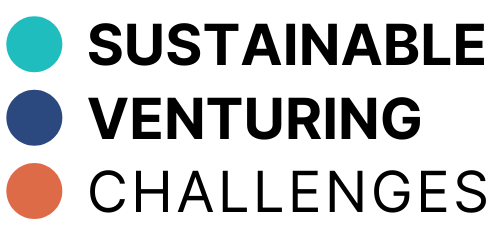
powered by ScaleUp4Sustainability
Carl von Ossietzky University of Oldenburg
Department of Business Administration, Economics and Law
Adj. Prof. Innovation Management and Sustainability
Ammerländer Heerstr. 114-118, 26129 Oldenburg, Germany
Legal notice and data protection

The platform was created as part of the ScaleUp4Sustainability project. ScaleUp4Sustainability (Project Reference: 601150-EPP-1-2018-1-DE-EPPKA2-KA) is funded by the Erasmus+/Knowledge Alliance Programme of the European Union.

